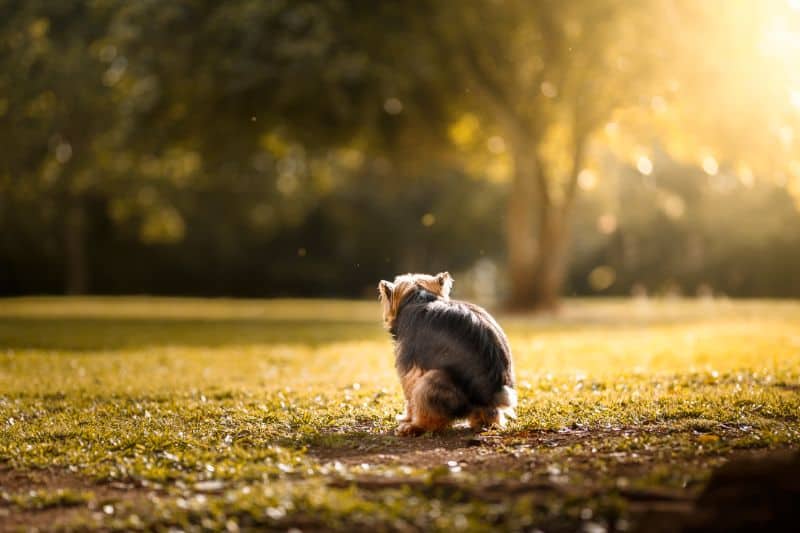You are What You Eat: Avoiding Dog Diarrhea at Home

Some dogs are known for their stomachs of steel – it seems as though they can devour just about anything and never pay the consequences. Other dogs experience digestive upset at just the idea of anything but their normal diet.
Most of our canine patients at Rocklin Ranch Veterinary Hospital fall somewhere in between. Regardless of where your pet falls on the spectrum, we know that dog diarrhea is no fun for any of the parties involved, and if we can avoid it altogether we will.
The Dynamics of Dog Diarrhea
Diarrhea is defined as the increased frequency and/or looseness of bowel movements in an individual. This occurs when there is increased fluid in the stools, which can happen for a few reasons:
- Increased secretion of fluid into the intestines
- Decreased fluid absorption by the intestines
- Increased speed of transit of stool through the intestines
Diarrhea can be acute (sudden) or more chronic. It can also be caused by something in the upper part of the bowels (small intestine), the lower part (large intestine), or both.
We commonly see large intestinal diarrhea (colitis) in our dog patients, especially when the cause is something they ate. When colitis is causing dog diarrhea we may see straining to defecate and blood or mucous in the stools.
The Top 5 Most Wanted Suspects
While some causes of dog diarrhea are out of our control, there are certain things we can do to lower the risk. You might avoid a trip to the veterinarian if your remain cognizant of the top culprits:
People food – Many folks like to share what is on their plate with their pet. Some dogs tolerate this more than others. For some, straying from their normal diet can trigger gastrointestinal trouble. There are definitely certain foods that are more apt to cause problems, such as fatty or rich foods like bacon, gravy, fried foods, and butter. Sometimes these types of foods can also trigger a more serious gastrointestinal condition called pancreatitis.
Tempting trash – Rotten or moldy foods, overindulgence, and eating non-food items can certainly cause diarrhea as well as put your pet at high risk for a foreign body obstruction.
Treats and other dietary changes – Even things that are meant for dogs to eat can cause problems. When changing foods, be sure to do so slowly over the course of 7-10 days to avoid tummy upset. Likewise, take it slow when adding a new treat to the diet. Give treats sparingly, and keep them out of reach the rest of the time (nothing screams dog diarrhea more than a pet wolfing down a whole bag of treats in a day).
Non-food indulgences – Don’t forget that your dog’s keen sense of smell might make some non-food objects attractive items to eat. Smelly items like underwear, socks, and shoes are favorites of many pets. Likewise, food wrappers, kitty litter, and bird seed can make for tempting, and diarrhea-inducing, treats.
Gorging in the Great Outdoors – Your pet may enjoy spending time outdoors, but that doesn’t mean that there aren’t things out there that could be ingested. Landscaping rocks, mulch, and other decorative items certainly can cause trouble when ingested. The yard may also hold the carcasses of small animals that can make a fun meal for some pets. Also beware of your pet ingesting the feces of other animals, which can lead to diarrhea due to sheer tummy upset or even intestinal parasite transmission.
Dog diarrhea, especially when persistent, can lead to dehydration and electrolyte disturbances. It can also be a symptom of a more serious problem. If your pet has had more than two bouts of diarrhea in a 24 hour period or has other symptoms of not feeling well, please let us know.

